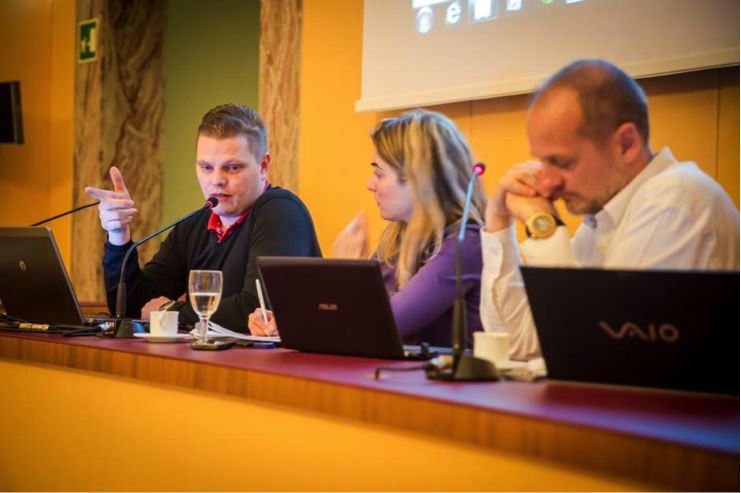The second training activity took place in Naples on the 13th and 14th of May 2014 and was hosted at the Maritime Terminal in the Port of Naples under the topic “Improvement of MED ports transit capacities through multimodality and intermodality. Towards a more efficient organisation of ports logistic activities”.
This event, organised by CO.NA.TE.CO S.p.A. with the support of IAT, ICCS and SEAbility, provided the opportunity to more than thirty attendees, including key personnel from the local port authority and terminal to learn more about issues as the ICT role in an efficient and sustainable logistics organisation for maritime transport as well as familiarisation with best practices presented by companies and port authorities, such as the ValenciaPort Foundation, NOATUM, Andalusian Public Ports Authority and the Port of Koper, among others.
The opening speech of the training activity was made by the Managing Director of CO.NA.TE.CO (Napoli Container Terminal) Mr Pasquale Legora who welcomed the delegates and proceeded to present and analyse all relevant aspects of CO.NA.TE.CO, including their strategic planning for the forthcoming years.
The location of CO.NA.TE.CO as a European node located at the centre of the Mediterranean Basin places and its strategic proximity to international trade routes highlights the attributes of the Port of Naples as an important link between North and South Europe. CO.NA.TE.CO is the leading terminal operator of Naples port and one of the largest operators in Italy. A number of major shipping lines utilise CO.NA.TE.CO as a hub terminal, thanks to its ideal geographical position, which is particularly favourable for transshipment operations and also for its high participation as a gateway for Italian exports. The terminal uses this opportunity to speed up the gate-in and gate-out activities with new OCR system technology, bringing functional improvements to the Port of Naples, reducing road congestion and facilitating the operators and the port users.
The professionals that attended the two training days were from four different countries (Spain, Greece, Italy and Slovenia). What is worth a special mention is the high evaluation score awarded to the event by the attendees, which attained a mean value of in excess of 5 points in a scale from 1 (poor) to 6 (best).
The INTE-TRANSIT project will organise the next training activity in Valencia during the coming October. More details will be published shortly.

